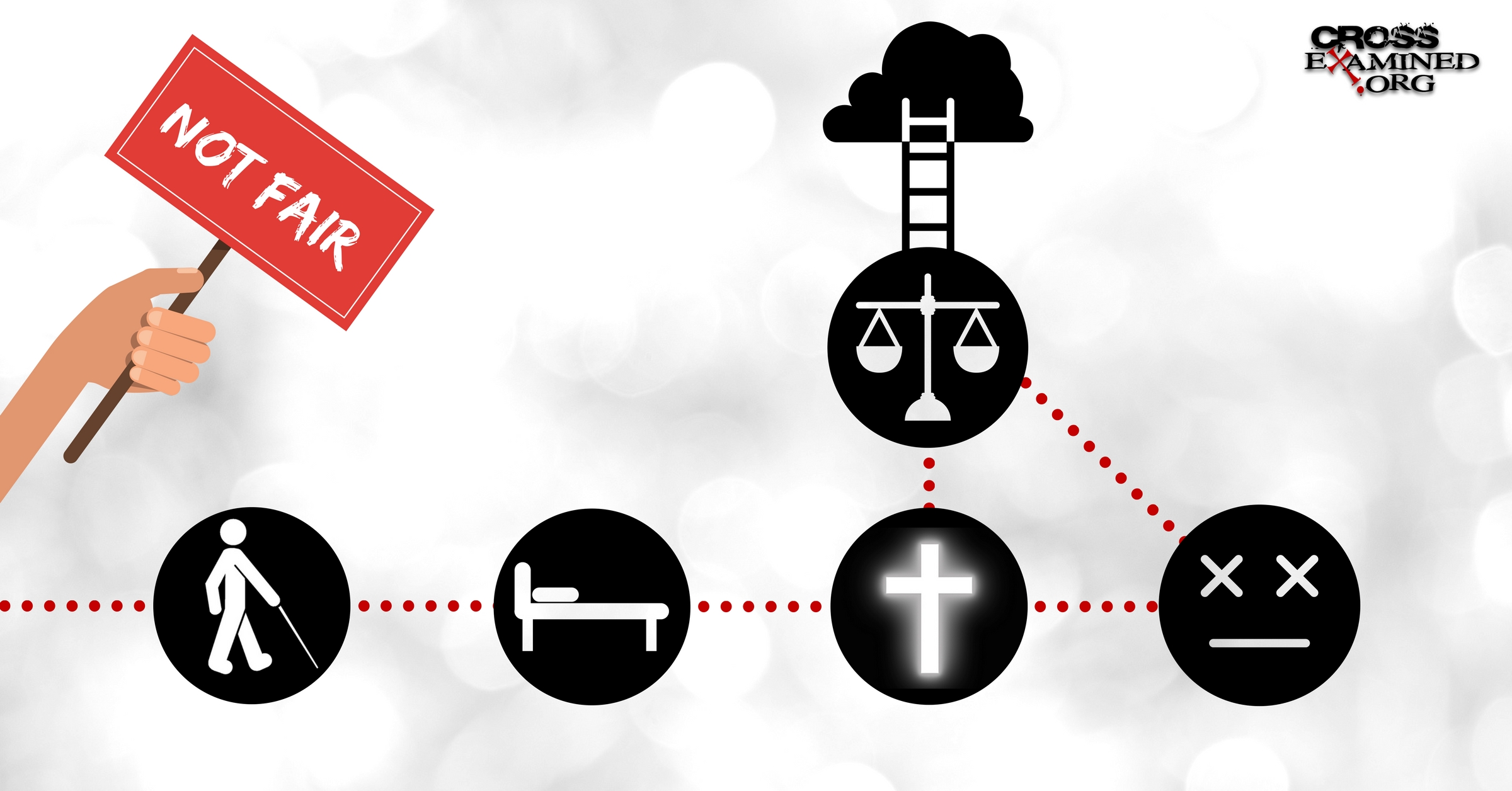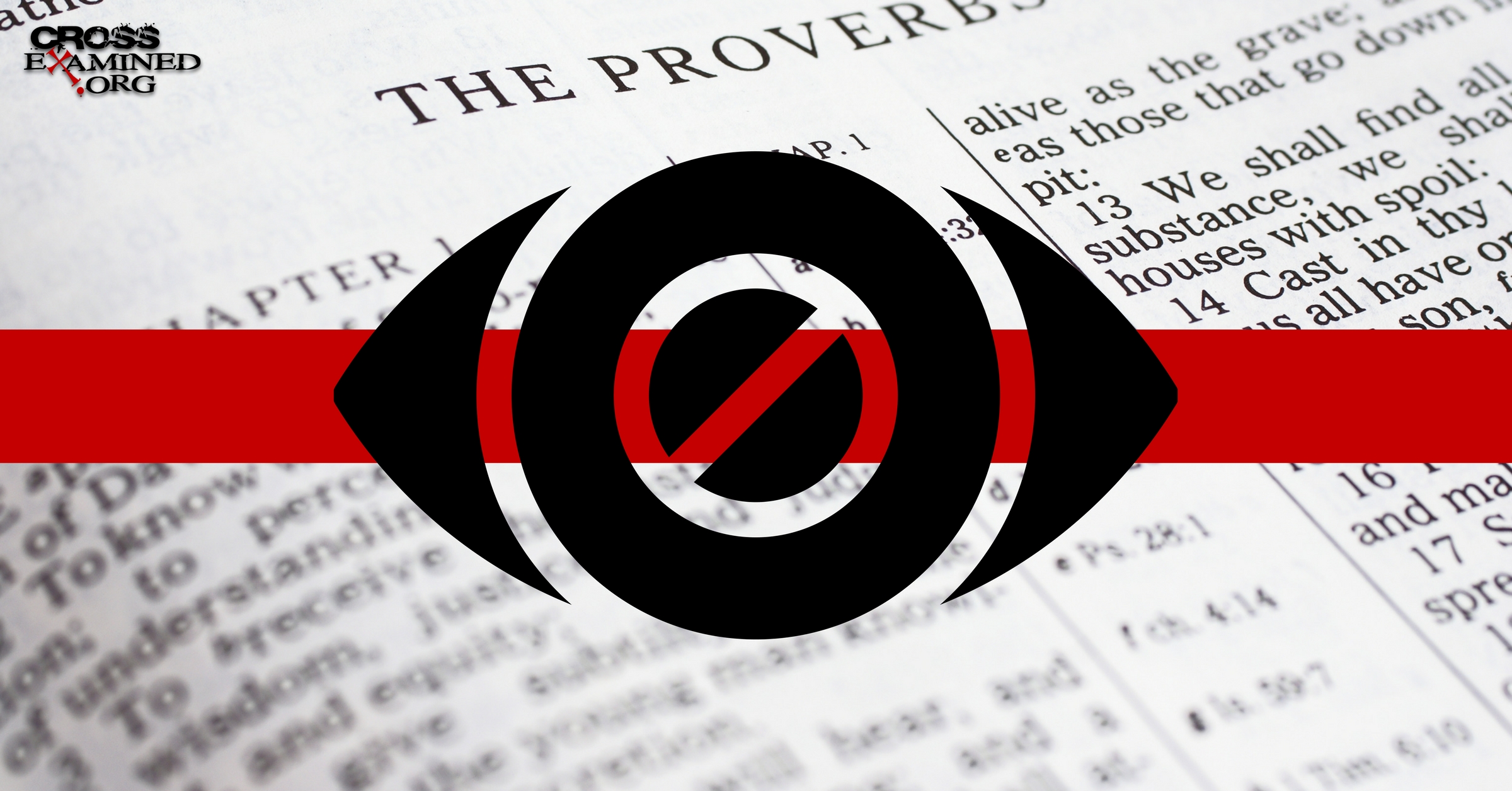By Brian Chilton
A church member approached me recently and asked a difficult question. He told me of the story of a family member who had accepted Christ as Savior moments before he died. While the church member was happy that his relative had made it to heaven, he still wondered how it was fair that he would work for the Lord his whole life, and his family member only lived for Christ moments before death, and they both went to the same heaven. Are death bed conversions fair?
I researched this topic and oddly enough did not find anyone who has dealt with this issue. So, to my knowledge, this is the first treatment of this particular topic. Before we find an answer to this topic, we must cover a variety of issues that together will bring us to a reasonable answer. We must examine the depth of sin, the importance of faith, the importance of repentance, the compassion of God, the call of God, Christian judgment, and the rewards of heaven. First, the depth of sin must be examined.
The Depth of Sin

As we look at the fairness question of deathbed conversions, we must first look at the depth of sin itself. In our culture, many possess a high sense of entitlement. Those who possess this mentality feel that they deserve a living, deserve benefits, and deserve salvation. Let the reader know that I am not insinuating that those who posed this question to me are in any way, shape, or form these kinds of people. But, many in our culture do have a high sense of entitlement. I am reminded of the word of my dad when I was young. He used to say, “No one owes you anything. You must work to earn a living.” Even though there may be those who come to faith even having done some horrible things, we must ask this question, is it fair that any of us are saved? Do any of us deserve salvation? Have we been good enough to be saved from hell? The answer is shocking because the answer is “no.” None of us deserve salvation. None of us can earn salvation. None of us can be good enough. This is a Scriptural fact.
Isaiah puts this in perspective as he wrote, “For all of us have become like one who is unclean, and all our righteous deeds are like a filthy garment; and all of us wither like a leaf, and our iniquities, like the wind, take us away.”[1] So even at our best, we are not worthy of salvation. Our very best is as a “filthy garment” to the holiness of God. So if salvation is not by grace, it cannot be given at all, because we would have to be holy as God in order to earn salvation. None of us are good enough to do so. I know that is not encouraging, but it is truthful. As the 80s band “The Human League” sang, “I’m only human…born to make mistakes.”[2] So is anyone righteous at all?
The apostle Paul wrote to the Romans the following,
What then? Are we better than they? Not at all; for we have already charged that both Jews and Greeks are all under sin; as it is written, “There is none righteous, not even one; There is none who understands, There is none who seeks for God; All have turned aside, together they have become useless; There is none who does good, There is not even one.” “Their throat is an open grave, With their tongues they keep deceiving,” “The poison of asps is under their lips”; “Whose mouth is full of cursing and bitterness”; “Their feet are swift to shed blood, Destruction and misery are in their paths, And the path of peace they have not known.” “There is no fear of God before their eyes.” [3]
As disturbing as it may be to confess, we all meet the qualities that Paul gave. Even the very best of us are unworthy before God. Think about the most holy, righteous person you know…if that person is me, then you need to meet more people. That holy, righteous person is nothing compared to the goodness of God. So how can anyone be saved?
The only way we can know God is by the Spirit of God working in our lives. Just like I cannot know what you are thinking unless you tell me, we cannot know the mind of God or the qualities of God unless God reveals them to us. We then have the opportunity to respond positively or negatively to the grace that He bestows to us. So how then are we saved? We must have faith.
The Importance of Faith

The writer of Hebrews writes, “And without faith it is impossible to please Him, for he who comes to God must believe that He is and that He is a rewarder of those who seek Him.”[4] What is faith? The Greek term for “faith” is “pisteuo.” The term represents a “trust” and “dependency” upon something or someone. So, the biblical term for “faith” is trust. Without this trust, it is impossible to please God. Why? I think the answer is because when we trust God, we realize that He has the power to help us where we do not. Some would call this arrogance on God’s part, but that is not the case.
I understand this need for dependency upon God more as a parent. My son is an independent soul. He wants to do things himself and wants very little help. But, there are some things that he cannot do for himself. I am more than willing to help him and give him instruction if he is willing to listen and ask for help. No matter how hard he tries or how much he climbs, he still cannot reach the top of the refrigerator. If he wants something from on top of the refrigerator, I have to reach down to him.
I think the same is with God. He has reached down to us to give us something that we cannot earn and do not deserve in salvation. God is our Master and our Creator. Without God, we would not be here. We need His direction and His instruction. So, I think that is part of the reason why faith is the only way we can please God. Plus, dependency upon His work on the cross is the only thing that can save us from the penalty of our sins. Is it fair for a person on his or her death bed to ask forgiveness? It is no fairer than it is for any of us to ask for forgiveness. But it is not about justice, because if God was about serving only justice we would all be in hell. It is about love and grace. But, isn’t there a need for repentance? Yes, we will examine this aspect in the next section.
The Importance of Repentance

Jesus is quoted in Luke’s gospel as saying, “I tell you, no, but unless you repent, you will all likewise perish. “Or do you suppose that those eighteen on whom the tower in Siloam fell and killed them were worse culprits than all the men who live in Jerusalem? “I tell you, no, but unless you repent, you will all likewise perish.”[5] What does it mean to repent? The Greek term for “repentance” is “metanoeo.” Metanoeo means “to change one’s life, based on complete change of attitude and thought concerning sin and righteousness.”[6] So if a person is truly repentant, he or she will admit their wrong and change from his or her lifestyle of sin. This does not mean that he or she will never do anything wrong, but that the person has a complete transformation of mind, soul, and body. As Paul writes, “And do not be conformed to this world, but be transformed by the renewing of your mind, so that you may prove what the will of God is, that which is good and acceptable and perfect.”[7]
Therefore, if a conversion is authentic before death occurs, a transformation will take place. The guilty person will seek to reconcile the best he or she can with that time the person has left. Forgiveness requires repentance and repentance requires reconciliation to the best of one’s ability. Jesus said, “Therefore if you are presenting your offering at the altar, and there remember that your brother has something against you, leave your offering there before the altar and go; first be reconciled to your brother, and then come and present your offering.”[8] So, the person should be a changed person and not simply looking for a quick fix. None of us know that when we come to know the Lord that we will not be taken shortly afterwards. Faith comes first, then repentance, and finally repentance brings the responsibility of reconciliation to the best of one’s ability.
When I taught a discipleship course, the Holy Spirit worked in my life and brought up reconciliation that needed to happen between one of the members of the church and myself. The Holy Spirit would not let me rest until I at least attempted to make reconciliation. So, I spoke to the member and we worked things out. As a matter of fact, I believe my relationship with that member of the church is stronger now than it was before. One other element must be remembered as we discuss death bed conversions: the compassion of God Himself.
The Compassion of God

Simon Peter writes in his second letter, “The Lord is not slow about His promise, as some count slowness, but is patient toward you, not wishing for any to perish but for all to come to repentance.”[9] The issue that Peter presents is clear-cut. God does not desire that anyone goes to hell but that all come to repentance and faith which would lead to heaven. So, heaven rejoices when a person, even an evil person, comes to faith because a life has been saved from eternal death. When we think of hell, we sometimes forget the horrible eternal state that one would endure. But, what about a person who has been very bad? Doesn’t such a person deserve hell? Yes, but again, all of us do.
We must remember that Jesus endured the most horrible death that anyone could suffer while bearing upon His back the sins of the world. Luke records the following, “But Jesus was saying, “Father, forgive them; for they do not know what they are doing.” And they cast lots, dividing up His garments among themselves.”[10] Jesus was able to forgive the very persons who were torturing Him while they were torturing Him. How is that possible?
I must confess that I do not have the power to forgive like that myself, but only through the power of God. I have had some bad things done to me in my past, but nothing like that which Christ suffered. Yet, I have found the power to forgive through the presence of God. It would be very difficult for me to forgive someone who harmed my family. Honestly, I know that I do not have the power to do so alone. But, forgiveness does not claim that something that was wrongfully committed was okay, or that something bad was right. Forgiveness simply hands the case over to God. Forgiveness puts the situation in God’s hands knowing that He will bring about reconciliation and/or justice in the end. As the writer of Hebrews states, “For we know Him who said, “Vengeance is Mine, I will repay.” And again, “The Lord will judge His people.” It is a terrifying thing to fall into the hands of the living God.”[11]
How can there be justice for someone in the body of Christ? Doesn’t this give a clear slate to everyone in the church? Does this give Christians the clearance to do wrong? Heaven forbid. There is still a judgment for Christians as we will see later. But before we do, let us examine the Christian’s responsibility. You may ask, “How does this affect deathbed conversion?” Hang tight; we will bring it all together in the conclusion. Let us examine the responsibilities of the Christian, or rather the “Call of God.”
The Call of God

Before we examine our final segment and move towards the conclusion, let us examine the call of God for the Christian. As we read earlier, it is not God’s will that anyone should perish but that all come to repentance. It may be asked why some are allowed in the kingdom towards the end of a person’s life. God does not desire for anyone to perish even if the decision is made only moments before one dies. To exemplify this point, Jesus gave a parable about a landowner. To understand this parable correctly, one must understand that the workers were desperate and needed money to feed their family. It is set in a time that was similar to the times of the Great Depression where displaced workers depended on day to day work to provide for their families. Keep this in mind in addition to the need for salvation as you read Jesus’ parable. Jesus said,
For the kingdom of heaven is like a landowner who went out early in the morning to hire laborers for his vineyard. “When he had agreed with the laborers for a denarius for the day, he sent them into his vineyard. “And he went out about the third hour and saw others standing idle in the market place; and to those he said, ‘You also go into the vineyard, and whatever is right I will give you.’ And so they went. “Again he went out about the sixth and the ninth hour, and did the same thing. “And about the eleventh hour he went out and found others standing around; and he said to them, ‘Why have you been standing here idle all day long?’ “They said to him, ‘Because no one hired us.’ He said to them, ‘You go into the vineyard too.’ “When evening came, the owner of the vineyard said to his foreman, ‘Call the laborers and pay them their wages, beginning with the last group to the first.’ “When those hired about the eleventh hour came, each one received a denarius. “When those hired first came, they thought that they would receive more; but each of them also received a denarius. “When they received it, they grumbled at the landowner, saying, ‘These last men have worked only one hour, and you have made them equal to us who have borne the burden and the scorching heat of the day.’ “But he answered and said to one of them, ‘Friend, I am doing you no wrong; did you not agree with me for a denarius? ‘Take what is yours and go, but I wish to give to this last man the same as to you. ‘Is it not lawful for me to do what I wish with what is my own? Or is your eye envious because I am generous?’ “So the last shall be first, and the first last.[12]
From this parable, we find two great principles. First, we find that salvation is a gift that God gives. Like the landowner who gave money to those in need, God gives salvation to all those who receive the grace freely given. Second, the gift offer is available until this life is over. The only time when grace is no longer available is when the last breath of a person is taken from an unrepentant sinner. God shows no partiality. He loves us all the same. But, does this mean that there is no justice to the deeds done on earth? Does this mean that the Christian can get away with anything? No. The Christian will face judgment, but will be justified. The deeds done as a Christian do matter as we will see in our final section.
The Christian Judgment: Grace Is Not a “Get Out of Jail Free” Card

In Hasbro’s famous board game Monopoly, a card exists that gets the board game player out of jail in the event that the player lands on the “Go to Jail” slot. The card is called the “Get Out of Jail Free” card. Christians have been charged for viewing salvation in this regard. In other words, some believe that Christians can do anything they want without a penalty for their actions. In fact, some Christians do view salvation in this regard. Who is to blame for this viewpoint? Well, to be honest, we preachers are guilty to some degree. Preachers want to stress the forgiveness found in salvation. While it is true that our sins are forgiven judicially, this does not give us permission to do anything we desire without repercussion. In fact, numerous Scriptural references show that even though the Christian is forgiven, he or she will still have to stand before judgment.
One example can be seen in Jesus’ teachings. Jesus said, “For the Son of Man is going to come in the glory of His Father with His angels, and will then repay every man according to his deeds.”[13] Jesus shows that everyone will be judged for his or her deeds. But, this does not mean that the Christian is no less forgiven. Judicially the Christian has been forgiven. But relationally, the Christian will still have to give an account for the deeds done while in the body of Christ. We also see this in the book of Acts.
Peter, who had walked and learned from Jesus for three and a half years, told Cornelius the following at Caesarea, “And He ordered us to preach to the people, and solemnly to testify that this is the One who has been appointed by God as Judge of the living and the dead. “Of Him all the prophets bear witness that through His name everyone who believes in Him receives forgiveness of sins.”[14] Notice that Peter refers to God as the Judge of all. Everyone who trusts in Him receives forgiveness, but that does not indicate that the person will not stand before God the Judge. Paul gives us a lot of information concerning the judgment of all men, and especially that of the Christian judgment.
Paul gives information concerning judgment in his epic theological book to the Romans. Paul writes,
For when Gentiles who do not have the Law do instinctively the things of the Law, these, not having the Law, are a law to themselves, in that they show the work of the Law written in their hearts, their conscience bearing witness and their thoughts alternately accusing or else defending them, on the day when, according to my gospel, God will judge the secrets of men through Christ Jesus. [15]
Paul continues as he writes about the judgment that we all must face. Paul writes,
But you, why do you judge your brother? Or you again, why do you regard your brother with contempt? For we will all stand before the judgment seat of God. For it is written, “As I live, says the Lord, every knee shall bow to Me, And every tongue shall give praise to God.” So then each one of us will give an account of himself to God. Therefore let us not judge one another anymore, but rather determine this—not to put an obstacle or a stumbling block in a brother’s way.[16]
Is this judgment the same as what the unbeliever faces? No. Paul explains what is judged in the Christian’s life. Paul explains this as he writes to the Corinthians,
According to the grace of God which was given to me, like a wise master builder I laid a foundation, and another is building on it. But each man must be careful how he builds on it. For no man can lay a foundation other than the one which is laid, which is Jesus Christ. Now if any man builds on the foundation with gold, silver, precious stones, wood, hay, straw, each man’s work will become evident; for the day will show it because it is to be revealed with fire, and the fire itself will test the quality of each man’s work. If any man’s work which he has built on it remains, he will receive a reward. If any man’s work is burned up, he will suffer loss; but he himself will be saved, yet so as through fire. [17]
Paul shows that this judgment is called the Judgment Seat of Christ. He continues this thought in his second letter to the Corinthians as he writes,
Therefore, being always of good courage, and knowing that while we are at home in the body we are absent from the Lord—for we walk by faith, not by sight—we are of good courage, I say, and prefer rather to be absent from the body and to be at home with the Lord. Therefore we also have as our ambition, whether at home or absent, to be pleasing to Him. For we must all appear before the judgment seat of Christ, so that each one may be recompensed for his deeds in the body, according to what he has done, whether good or bad.[18]
Paul shows the importance of working for the Lord as these works will be offered as rewards and the bad things will be exposed, confronted, and removed. Paul shows that this work is important for everyone regardless of their position. He writes the following to the church of Ephesus,
With good will render service, as to the Lord, and not to men, knowing that whatever good thing each one does, this he will receive back from the Lord, whether slave or free. And masters, do the same things to them, and give up threatening, knowing that both their Master and yours is in heaven, and there is no partiality with Him. [19]
The writer of Hebrews even shows God as the Judge of all when he writes,
But you have come to Mount Zion and to the city of the living God, the heavenly Jerusalem, and to myriads of angels, to the general assembly and church of the firstborn who are enrolled in heaven, and to God, the Judge of all, and to the spirits of the righteous made perfect, and to Jesus, the mediator of a new covenant, and to the sprinkled blood, which speaks better than the blood of Abel. [20]
The obvious objection that many will pose has to do with references that our sins will be removed and remembered no more. The question to ask is when the writers are referring to this removal and lack of remembrance. Paul indicates that salvation is a process. Paul writes, “But God demonstrates His own love toward us, in that while we were yet sinners, Christ died for us. Much more then, having now been justified by His blood, we shall be saved from the wrath of God through Him.”[21] So in other words, we are saved at the moment of repentance, we are being saved as we are being forgiven, and will be saved when we are finally justified at the Day of Judgment. God’s promises are sure. So, even though we will face the Judgment Seat of Christ, we have the promise that we will be forgiven by the blood of the Lamb. On the final day of salvation…when we are justified or declared “innocent”…our sins will be remembered no more. So, in actuality, the promises of God are sure so it is a sure thing that our sins have been removed. But, this does not give any Christian the license to sin. Actually, salvation brings the responsibility to keep the commands of Christ. Jesus tells us, “If you love Me, you will keep My commandments.”[22] Salvation brings us security so that we can pay attention to serving Christ and working for the Kingdom. This is something that one who comes to Christ before death will not have the opportunity to do. The issue of deathbed conversions comes full-circle when we understand the importance of the Judgment Seat of Christ: issuing rewards.
The Rewards of Heaven

Jesus said, “Rejoice and be glad, for your reward in heaven is great; for in the same way they persecuted the prophets who were before you.”[23] Many Christians take the position of the gospel-bluegrass song titled Lord Build Me a Cabin in the Corner of Gloryland. In other words, the position is, “As long as I make it to heaven; that is all I am worried about.” But really, that position is extremely arrogant. Where is the appreciation? Where is the Christian responsibility? Jesus expects us to work for Him. He gave His all to save us. The least we can do is to work for Him. Does Jesus show the previously mentioned lazy Christian mentality as acceptable?
Jesus did not present a lazy type of Christianity in an acceptable light. The following is a parable that He gave that shows the importance in working for the Lord:
“For it is just like a man about to go on a journey, who called his own slaves and entrusted his possessions to them. “To one he gave five talents, to another, two, and to another, one, each according to his own ability; and he went on his journey. “Immediately the one who had received the five talents went and traded with them, and gained five more talents. “In the same manner the one who had received the two talents gained two more. “But he who received the one talent went away, and dug a hole in the ground and hid his master’s money. “Now after a long time the master of those slaves came and settled accounts with them. “The one who had received the five talents came up and brought five more talents, saying, ‘Master, you entrusted five talents to me. See, I have gained five more talents.’ “His master said to him, ‘Well done, good and faithful slave. You were faithful with a few things, I will put you in charge of many things; enter into the joy of your master.’ “Also the one who had received the two talents came up and said, ‘Master, you entrusted two talents to me. See, I have gained two more talents.’ “His master said to him, ‘Well done, good and faithful slave. You were faithful with a few things, I will put you in charge of many things; enter into the joy of your master.’ “And the one also who had received the one talent came up and said, ‘Master, I knew you to be a hard man, reaping where you did not sow and gathering where you scattered no seed. ‘And I was afraid, and went away and hid your talent in the ground. See, you have what is yours.’ “But his master answered and said to him, ‘You wicked, lazy slave, you knew that I reap where I did not sow and gather where I scattered no seed. ‘Then you ought to have put my money in the bank, and on my arrival I would have received my money back with interest. ‘Therefore take away the talent from him, and give it to the one who has the ten talents.’ “For to everyone who has, more shall be given, and he will have an abundance; but from the one who does not have, even what he does have shall be taken away. “Throw out the worthless slave into the outer darkness; in that place there will be weeping and gnashing of teeth.[24]
Some do not like the idea of rewards in heaven or the exposure of bad deeds. But, those who oppose this idea either are not actively working for God as they need to, or they have something in their lives that they know they shouldn’t. It cannot be said what the rewards are or what they represent. But, the fact that rewards are given and the stress that Jesus places on Christian service shows that they are important for the Christian. The fact that they are important to Jesus should make it important for the disciple of Christ. Could the rewards represent a status in heaven? Could the rewards represent special privileges, positions, or jobs in heaven? Only God knows for sure. But these rewards are more important than we give them credit especially in lieu of the emphasis of Jesus’ Parable of the Talents. Let’s bring this all together.
Conclusion:

So, is it fair for people to be saved moments before death? It is just as fair as it is for anyone else who is saved. Everyone is under the curse of sin. No one is worthy of salvation. Even the best among us is as a filthy rag compared to the holiness of God. Salvation is a gift given by God. God can save anyone at any stage in life who truly comes to God in trust and repentantance. But, there is a price that comes with a person who comes to salvation late in his or her life.
The Bible gives several references to the fact that every person will stand before God in judgment. The Christian will stand before the Judgment Seat of Christ. The problem with one who comes to Christ late in life is that the person will not have any opportunities to offer any work for Christ to be rewarded. Remember, the works that are rewarded are done in the body of Christ. Bottom line is that the works done for Christ during a lifetime will be rewarded. So, the one who comes to faith moments before death will enter heaven but will have little to show for his or her life in Christ.
When people graduate from college, both tho se on the honor roll and those who barely scraped by will graduate. But, those who graduate with honors have special recognition. The same is true with the one who has worked a lifetime for Christ compared to one who was saved moments before entering heaven. The one who worked a lifetime for Christ could be equated to the student graduating with honors whereas the person who was saved on their deathbeds are comparable to those who graduated by the skin of their teeth. Some have honors and some do not, but they all graduate.
se on the honor roll and those who barely scraped by will graduate. But, those who graduate with honors have special recognition. The same is true with the one who has worked a lifetime for Christ compared to one who was saved moments before entering heaven. The one who worked a lifetime for Christ could be equated to the student graduating with honors whereas the person who was saved on their deathbeds are comparable to those who graduated by the skin of their teeth. Some have honors and some do not, but they all graduate.
[1] All Scripture unless otherwise noted comes from the New American Standard Bible: 1995 Update (LaHabra, CA: The Lockman Foundation, 1995), Isaiah 64:6.
[2] The Human League, “Human,” Crash (Virgin Records, February 1986.) All rights reserved.
[3] Romans 3:9–18.
[5] Luke 13:3–5.
[6] James Swanson, Dictionary of Biblical Languages With Semantic Domains: Greek (New Testament), electronic ed. (Oak Harbor: Logos Research Systems, Inc., 1997).
[12] Matthew 20:1–16.
[13] Matthew 16:27.
[17] 1 Corinthians 3:10–15.
[18] 2 Corinthians 5:6–10.





















